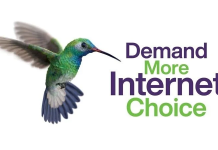As healthcare providers and parents continue to fight growing video game addiction among kids, the next big threat is already here in the form of augmented reality/virtual reality (AR-VR) based games, multi-gaming platforms and the popularisation of e-sports or organised, multiplayer video game competitions.
With several tech companies now entering the AR/VR market with the launching of headsets at various price points, gaming in the virtual space has become lucrative for them as it offers newer ways to entertain teenagers and young adults.
More than 51 million VR headsets have been shipped worldwide in the past five years, as Big Tech firms bet big on Metaverse and AR-VR technologies.
According to data presented by CasinosEnLigne.com, the installed base of VR headsets is likely to surge from 51 million to almost 100 million by 2024.
Fuelled by gaming, the global metaverse market is projected to reach $28 billion by 2028, from $510 million in 2022, growing at a compound annual growth rate (CAGR) of 95 per cent.
The pandemic has hastened the evolution of the internet, resulting in the metaverse, where cyberspace becomes more of an interactive 3D space with business and networking, as well as content that corresponds to the worlds in popular games such as Roblox, according to Valuates Reports.
“Based on application, the gaming industry is expected to be the most profitable. In order to participate in next-generation gaming, players are venturing into the real world of metaverse,” the report noted.
Meta has announced over 20 new titles for Quest VR headsets at the Meta Quest Gaming Showcase, in addition to the introduction of a $499 Quest 3 headset which will be launched later this year.
Apple has launched 20 new games in its game subscription service Apple Arcade that offers unlimited access to over 200 fun games.
The Apple Arcade Cloud gaming service offers hundreds of games you can play for just $5 a month. The service offers familiar and classic games, as well as exclusive titles.
Google has announced that it is working on a new augmented reality version of the arcade classic Space Invaders game with Japanese video game company Taito.
Sony has finally revealed the first look of a new handheld device for playing PS5 games via remote play over wi-fi which will hit the market soon.
The ‘Project Q’ dedicated device, launching later this year, enables people to play any compatible game installed on the PS5 console using Remote Play over Wi-Fi2.
Sony has also announced it is testing Cloud streaming for “supported” PS5 games.
The Japanese gaming giant has sold 38.4 million PlayStations 5 gaming consoles to date, shipping 6.3 million PS5 in the March quarter alone.
Not just traditional tech companies, but even streaming giant Netflix has entered into the world of gaming. Netflix will launch the ‘The Queen’s Gambit Chess’ game on July 25. The game is based on the streaming series of the same name.
It also announced five games coming in the next few months, including one game based on a popular series and one from the popular Lego franchise. The company plans to release up to 40 games this year.
Meanwhile, India is also one of the fastest-growing esports markets in the world.
According to a recent EY report, esports will generate a total economic impact of over Rs 10,000 crore through investments, direct industry revenues, in-app purchases and other revenues.
Amid this stupendous gaming growth comes the challenge to safeguard users’ data and privacy.
Microsoft will pay $20 million to settle charges that it violated children’s privacy by improperly collecting personal information from kids who signed up to its Xbox gaming system, the US Federal Trade Commission (FTC) announced earlier this month.
The tech giant was charged with flouting the Children’s Online Privacy Protection Act (COPPA) by collecting personal information from children who signed up to its Xbox gaming system without notifying their parents or obtaining their parents’ consent, and by illegally retaining children’s personal information.
“This action should make it abundantly clear that kids’ avatars, biometric data, and health information are not exempt from COPPA,” said Samuel Levine, Director of the FTC’s Bureau of Consumer Protection.
Microsoft will now be required to take steps to bolster privacy protections for child users of its Xbox system.
(Nishant Arora can be reached at nishant.a@ians.in)
20230617-183604




